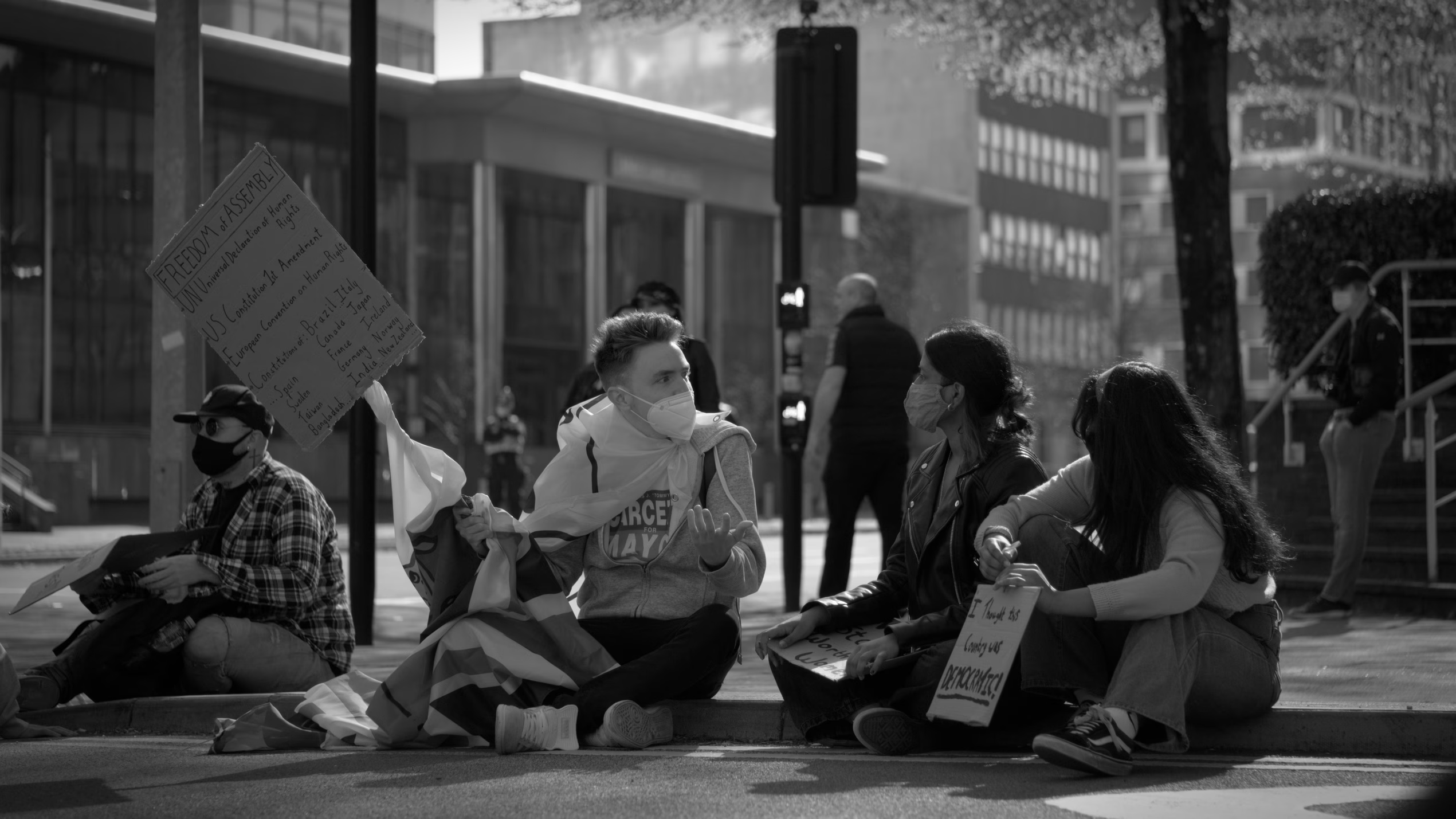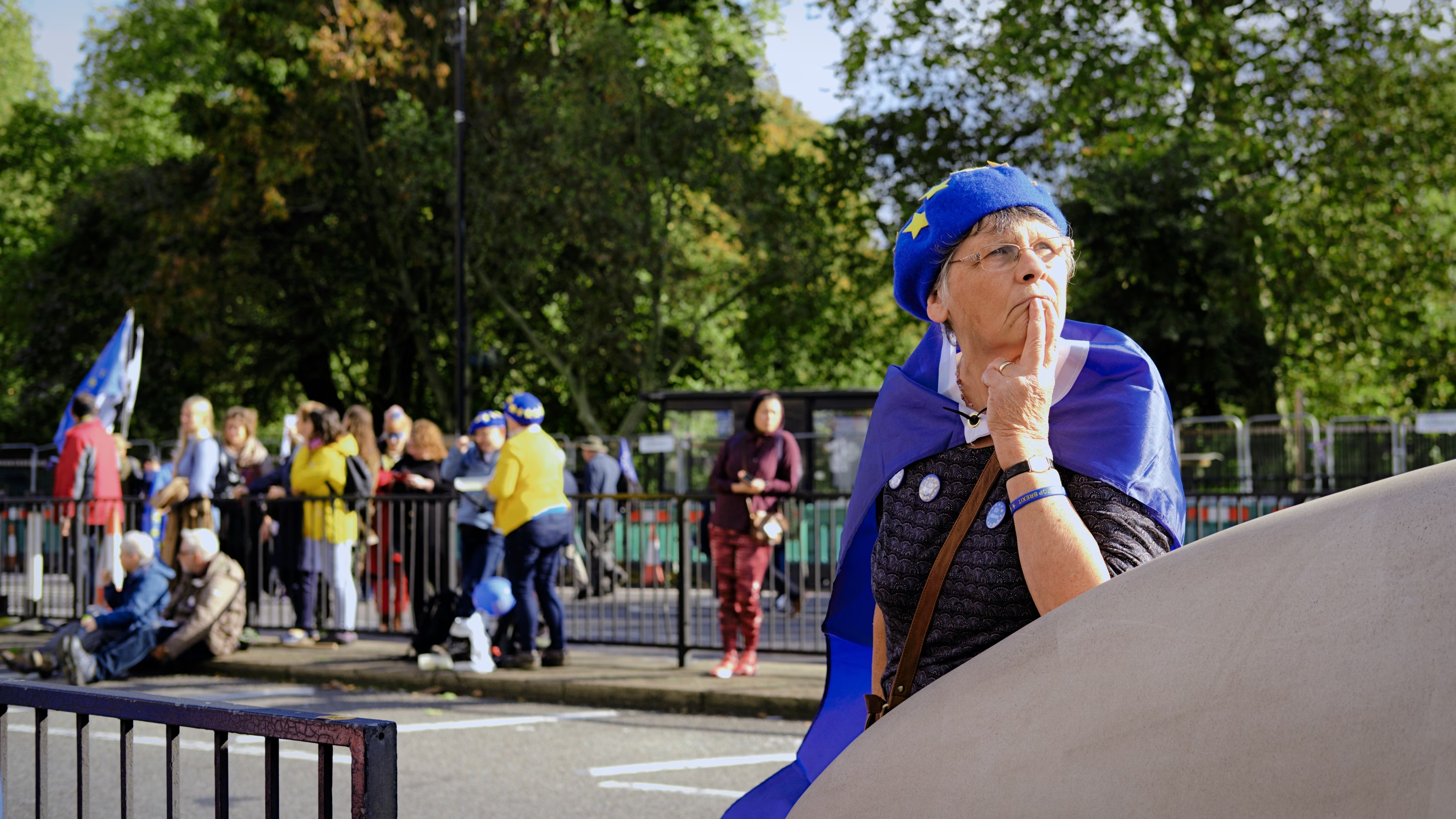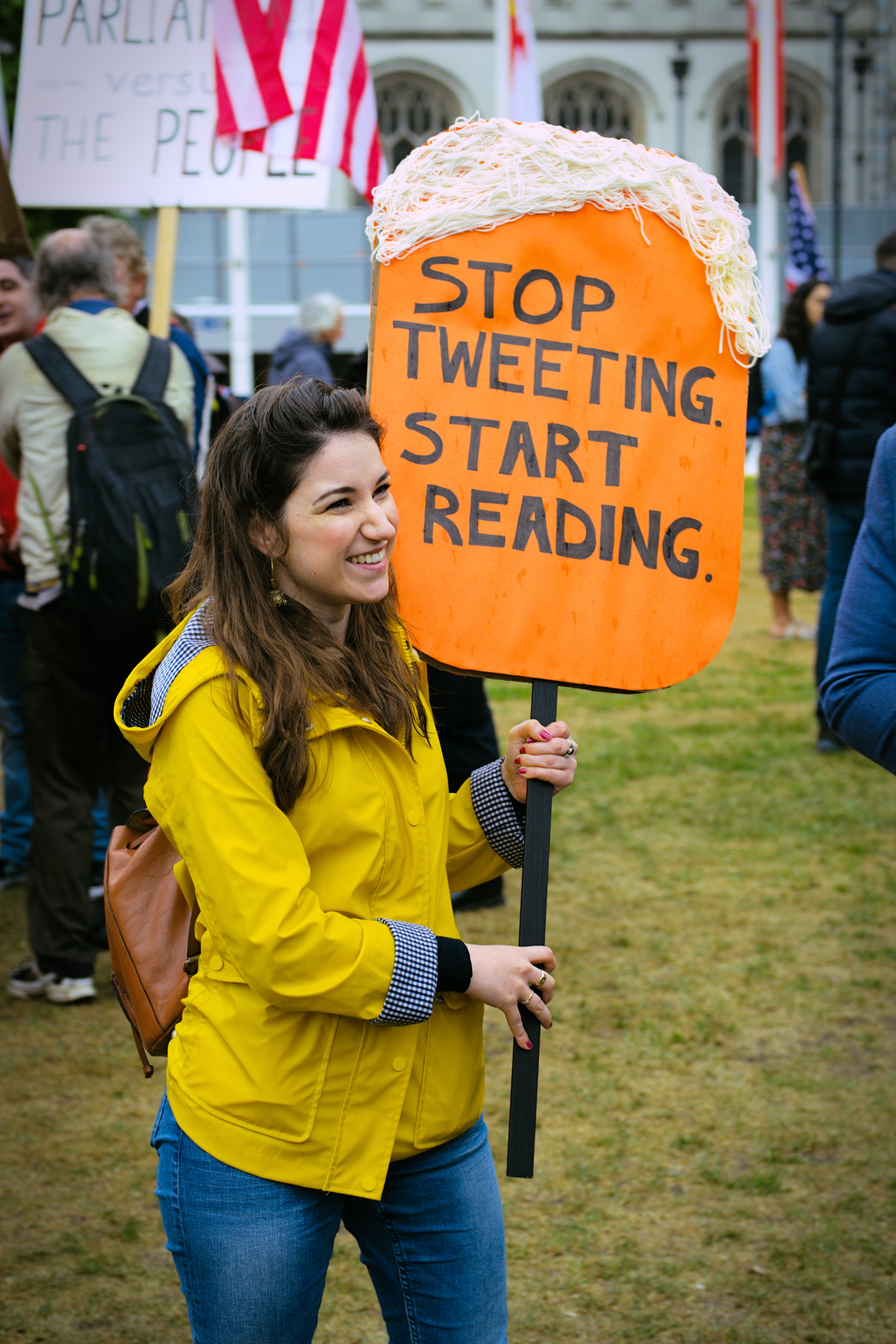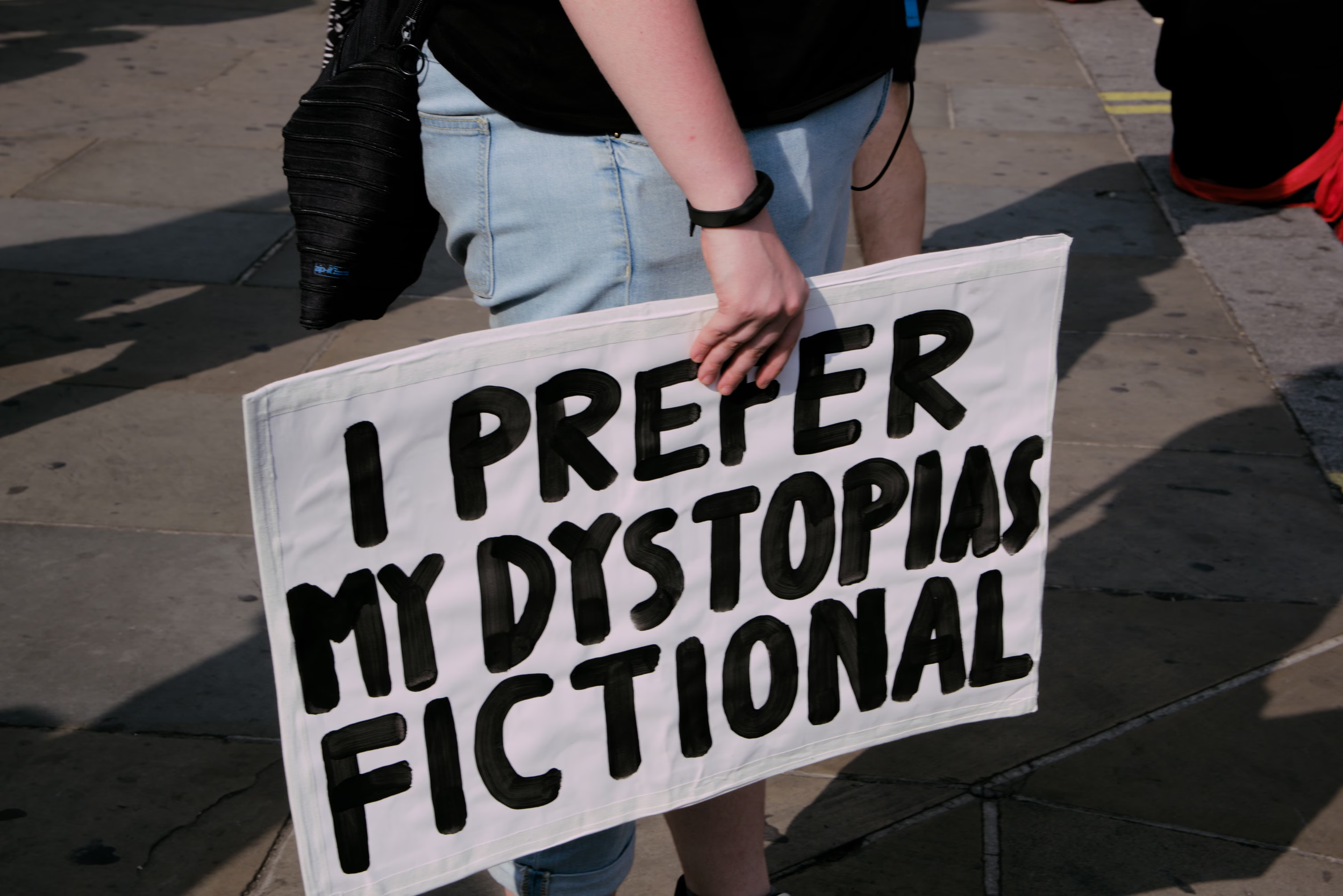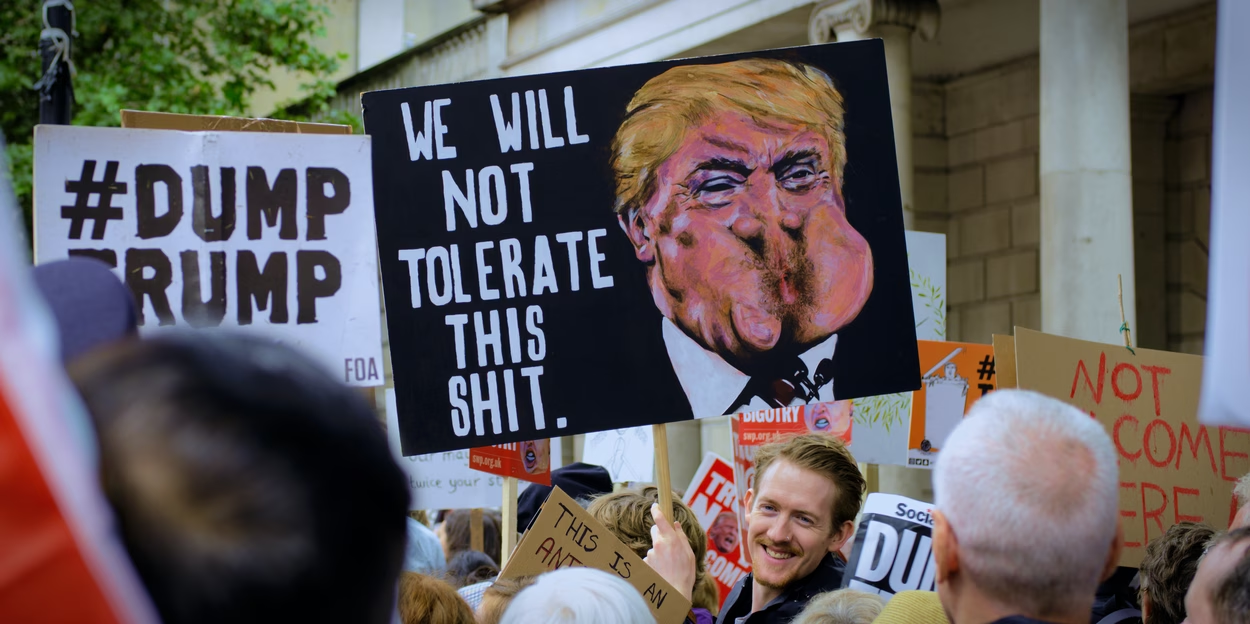
The year wanes, winter's chill grips us, and the nights draw in — and the world feels as though it's entering a cold, dark, final night with it.
Most of the world got to vote in a national election this year, a remarkable result of the post-WW2 liberal world order our forebears built for us, but how tentative it looks now. Some of those elections were shams, as with Russia in its theatrical managed democracy, and others marred by the influence of autocratic states (like Russia), as with Georgia, Moldova, and Romania.
All over the world, liberal-democracy seems more fragile than at any point in our lifetimes. The modern resurgence of fascism has given rise to authoritarian leaders and a new conservative movement oriented around anti-intellectualism, illiberalism, and populism. Some may say t'was ever thus, that conservatism has always been regressive, clinging to the ways of the past, holding the future hostage — but I think this is new.
This isn't merely a conservatism that wishes to regress to the laissez faire economics of the 19th century, nor one that clung to the biases and prejudices of past norms, nor one that defended absolute theocratic rule of monarchs in the earlier days of our modern democracies — nor is this fascism the sort that leads to jackbooted stormtroopers ordered by absolute authoritarians.
This is the post-truth era, one that breaks down every arena of thought and structure about the world. This isn't a school of thought, an ideological drive toward some version of the world that can be coherently defined. This is a rebellion against the idea that truth, law, diplomacy, and democracy should shape the world at all.
That's the greatest source of despair through it all, seeing votes cast in favour of a world without any definition beyond deconstructing what we have — liberal-democracy, the rule of law, international cooperation, and all the structures we've built since WW2 to ensure a peaceful world progressing ever toward being more just, more fair, more free, and more prosperous.
Rather, we're heading toward a world that's less free, less cooperative, less peaceful, and smaller. We're regressing back toward a world where the small idea of nation reigns supreme, headed by 'strong' leaders either directly nominated by or directly supported by the new billionaire class who see themselves as princes of the new world. They might see themselves like the leaders of the East India Company during the 19th century, while they're actually more like feudal despots vying to rule supreme during a looming new dark age.
The End of History
When I was going through my formative political years, the period was known as the end of history. The unheard of period of peace and liberal ascendancy filled people of my age with a new hope for the future, that the old histories of monarchs and tyrants, of nations and wars, of racism and xenophobia, homophobia and jingoism, and of every crime and folly of the past were over. A new world based on the rule of law, democracy, and liberty was emerging, with our leaders of the day being its architects.
9/11 ended that for many, with the Bush-led reactionary response introducing a new form of harshness we'd never known before. The long, proud history built from the end of WW2 through to the end of the Cold War and beyond that shaped how nations ought behave came not so much to a sudden end but to a sudden diversion along a bumpier, less diplomatic, more warmongery road.
Theocratic terrorism gave birth to a shaken faith in our liberal-democratic world, but I still clung to what survived. Onward, even through the global financial crisis, I clung to the idealism of a better world. I thought that eventually China would necessarily liberalise, because the natural tendency of any people is to want to be free, and democracy is the only legitimate form of state authority. I thought the same of Iran, of Russia, even of Gaza, Saudi Arabia, and every other region of the planet.
Deep in me was a deep belief that despite the setbacks, despite the authoritarian states around the world, that things would still ultimately trend toward a better, more connected, more cooperative world based on democracy and the rule of law. I'm not religious, but if I were so inclined, I believe these last few paragraphs would constitute my faith, which I might have once labelled humanism.
That unshakeable belief in me became shaken during the summer of 2016.
Brexit
The Tory victory in 2010 had been a shock to me, certain as I was in my younger days that the end of history was so complete that conservative forces would never rally again, and one that taught me the harsh lesson that there were a ton of people out there who disagreed with me about politics and liberalism. Still, the chaos that ensued and the deep sadness it inspired seeing the radical shrinking of the state, the swathing cuts to our public services, and the extirpation of so many of our NGOs and QANGOs came nowhere close to the despair I felt after the Brexit referendum.
(As an aside, I recall lamenting during the campaign period that 'brexit' had become so prominent a portmanteau. Afterward, seeing it become codified by successive Tory governments made my soul howl.)
My recollection of the campaign is that it wasn't so bad. There were lies, of course, from the usual host of right-wing liars, but public discourse was generally well-intoned. The only ugliness I recall was from Nigel Farage and his ilk, framing the referendum as a defence against hordes of migrants from Eastern Europe, with some elements that were particularly sickening.
It was the aftermath that truly filled me with despair though. Every part of our government and public discourse became dominated not only by ugliness, but by the populist illiberalism of Boris Johnson. I am a rare lover of our democratic and public institutions, and seeing them perverted by his brand of anti-intellectual, anti–rule of law, cult of personality politics cut deeply.
For all his bluster, his nonsense, his lies, his crimes, and every part of his utterly loathsome self and party, what truly stung was the realisation that half the country agreed with him. They viewed the world so completely differently to me, siding with the arrogant voices and the amassed capital of those ushering in a crueller world. Brexit could have been a purely intellectual issue debated on its merits, but the way it went in those years after the referendum made it more about the character of those involved, and they grossly failed that test.
They weren't just people I disagreed with, but uglier, smaller, meaner people who loathed the wider world, our institutions, much of our history, and anybody that didn't fit in a very narrow category of the right sort of person. Seeing what and who they voted for, how the ensuing debate in those years went, I realised they simply didn't see the world like I did. Their contempt for our Parliament was exceeded only by their contempt for Europeans — and for half of their countrymen. Seeing them succeed so smugly, laying waste to our constitution, and the idea of losers' consent felt somehow more galling, more nauseating, more hurtful than anything else I'd known.
It felt like a wound in the soul.
I was busy then enduring the perversion of my own party, which seemed to share in that level of contempt for Parliament, our institutions, and at least half of our voters too, leaving the space in which I lived narrower than I'd ever known.
The end of history period was already long over by that point, and the world that looked like it was in ascendency a decade prior now looked tiny. It was hard to find anybody at all who occupied that same space as me, and every time I looked outside it I saw a world utterly hostile and utterly ugly to me.
Trump
Trump's ascendency in 2016 felt, I imagine, similar for a great many Americans. I recall feeling galled by his first win, if not by the crassness of his person (the "grab them by the pussy" tape stands out) then by his championing of the 'birther' conspiracy movement regarding Barack Obama. Just like Johnson, Farage, brexit, and many more recent examples, Trump then appeared like a threat to liberal-democracy and the rule of law — and that before the many egregious confirmatory examples through his presidency.
The world changed under his first presidency. The continuation of Obama's shameful abandonment of the Ukrainians in their struggle against Putin's authoritarian militarist conquest was one part of it, helping invite a new, more dangerous, less peaceful world. That it was punctuated by an impeachment for attempting to extort the Ukrainians to aid his presidential campaign was perhaps emblematic of his approach to democracy, disgusting and perverse as it is.
Not to gloss over his many other crimes and follies, but the main thing for me was his approach to COVID-19. I'm not sure many countries can claim to have handled the pandemic well — certainly not us, with our Tories running the show — and I consider the whole affair a massive failure of science communication across the board. Trump though demonstrated an utter contempt for science, truth, facts, public health, public discourse, good government, the rule of law, and virtually everything I consider good in the world.
Even ignoring the body count attached to his vile conduct, the seeds he planted then deconstructing science, medicine, expertise, and public institutions gave way to a wider assault on truth and facts that underpins his resurgence now. The earlier assaults on the 'fake news' and championing of 'alternative facts' paled in comparison to the later stages of the movement, through COVID-19 and election denial, that now attacks at the very idea of truth itself.
Such anti-intellectualism and truth-denial is a necessary precursor for fascism to ascend, and it's now a core part of every piece of messaging Trump and the Republicans issue.
To see Trump elected again must, I think, resonate in Americans' souls in a similar way that brexit did here, with me. To have endured COVID-19, the impeachments, the criminal convictions, the assaults on the rule of law, January 6th, the abolition of Roe v Wade, demonstrations of his ugliness and contempt for voters, and countless stains on civility and civic governance, only to then see half of the electorate vote for him anyway must surely hurt more than anything Americans have had to endure since 9/11.
The worst of it, I think, is seeing the loathsome souls who get to champion the victory. The techbros, the billionaires, the vast hordes of mediocre middle-aged short bald men, the neo-Nazis, the podcasters, the woefully unqualified Republican congresspeople, every repugnant voice that underscores every worst habit and instinct humans possess are celebrating this dark moment.
It makes my stomach turn, far removed from America though I am.
Despair
And so as the world turns toward the end of this year I'm filled mainly with despair.
Ukraine seems doomed, and the future for the liberal-democratic world looks dire. Every election now will feature Russian influence, and every dispute threatens to invite Russian militarism. Trump seems set on abandoning the world, with the future of NATO and the future of the civilised world's resolute defence against authoritarianism wavering according to his whim. Trade and our interwoven economies that prevent war appear to be Trump's playthings, ready for him to deconstruct and plunge us into a more chaotic world that he, like Littlefinger, sees as a ladder toward ever more power.
Project 2025 seems to underpin Trump's governing ethos, threatening to bring single-party rule to the United States forever. The future of the country often espoused as the last best hope for humanity seems in doubt, with the end of American democracy looming, all while being cheered on by half of a nation founded at the height of the Enlightenment to enshrine a liberal governing ethos in a world dominated by empires and monarchs.
More than turning the American ship of state toward an ultra-conservative, even authoritarian slant, Trumpism seems intent on deconstructing it. As he takes an axe to everything that government does, he'll be filling it with loyalists, regardless of qualification. He'll be appointing ridiculous figures to run the federal government in order to instill their pernicious views on health, on justice, on defence into the very fabric of government, while driving it toward the Republican caricature of dysfunction that they require it to be.
The emergence of a billionaire class corralling the popular support of loathsome figures like Joe Rogan and the unimaginable wealth of Elon Musk and Peter Thiel seem set on regressing the globe toward a new form of feudalism as nations devolve into petty smallness. Trade wars threaten a shift toward protectionism and autarky, of a sort that might seem appealing to those bizarre folks who advocate degrowth, and the breakdown of international law and the very rule of law invites a future of war, of conquest, and of regular atrocity — all as misinformation and propaganda make people unable to agree on a shared reality, of even being able to document and understand the decline of the world around them, often leading them to cheerlead for it out of a confused world view constructed from podcasts, YouTube celebrities, and Twitch streamers.
For all my despair though, there are some green shoots to look at.
My party bucked the trend and defeated the regressive right wing here this year, having rapidly repaired itself after the wilderness years of Jeremy Corbyn. Having secured the second biggest victory in Parliamentary history, Starmer and McSweeney engineered a near-perfect campaign to inflict a lasting, historic defeat on the Tories, devastating them to the point that it's hard to see a single route back to power for them within the next decade.
As they build massive green infrastructure, aiming to decarbonise the entire power grid by 2030, while nationalising the railways, instituting a national wealth fund, resolving our housing crisis, massively investing in public services, and tons of other massive efforts to undo and build beyond the devastating legacy of Tory hegemony, the bigger threat rather seems to be from Nigel Farage and Reform, who, riding the coat-tails of Trumpist populism, seem likely to benefit from the massive wealth of the world's richest man in establishing themselves as a viable electoral force.
All in all, with the populist right in resurgence all over the globe, with populations having their public discourse and institutions perverted such that they'll willingly vote for them, Starmer's victory serves as a shining beacon for how to defeat them: by moving to where the voters are, by avoiding culture war issues, and by faithfully representing liberal ideals and good governance. For decades, centre and centre-left parties will be studying and drawing inspiration from his wild success, and history might well remember it as a momentous accomplishment: the bulwark against this looming descent into a dark age.
Starmer's not the only successful soldier on this front. The French left and centre-left demonstrated something truly remarkable in their unity in opposing their far right, and though their chaos isn't yet over, Macron's action in defying the right serves as a wonderful example of the Fifth Republic at its very best. Donald Tusk too leads the way in demonstrating how to deconstruct the poisonous perversion of the far right. He's made some missteps, perhaps going too far too quickly, but he's teaching the world a desperately needed lesson for how to fix things when — if — this era of pain, suffering, and decline ends.
There are many others, and even among the most horrid circumstances there are always signs that there are those willing to fight for and defend liberal-democracy — even in Syria, Georgia, Israel, and, most notably, in Ukraine.
As this year closes and ushers in a new one that looks to be filled with horror and despair, those are the things I'll be clinging to. Things are going to get unimaginably horrible for everyone — Americans and Ukrainians in particular — and while we endure the smug gloating of all the most horrible people we see in public life, I think it'll be important to cling to those few positive turns we see.
The thought I've had festering since the US election is how I can contribute toward helping to combat this turn toward horror. I have no ideas yet, but I'm not done thinking about it.
